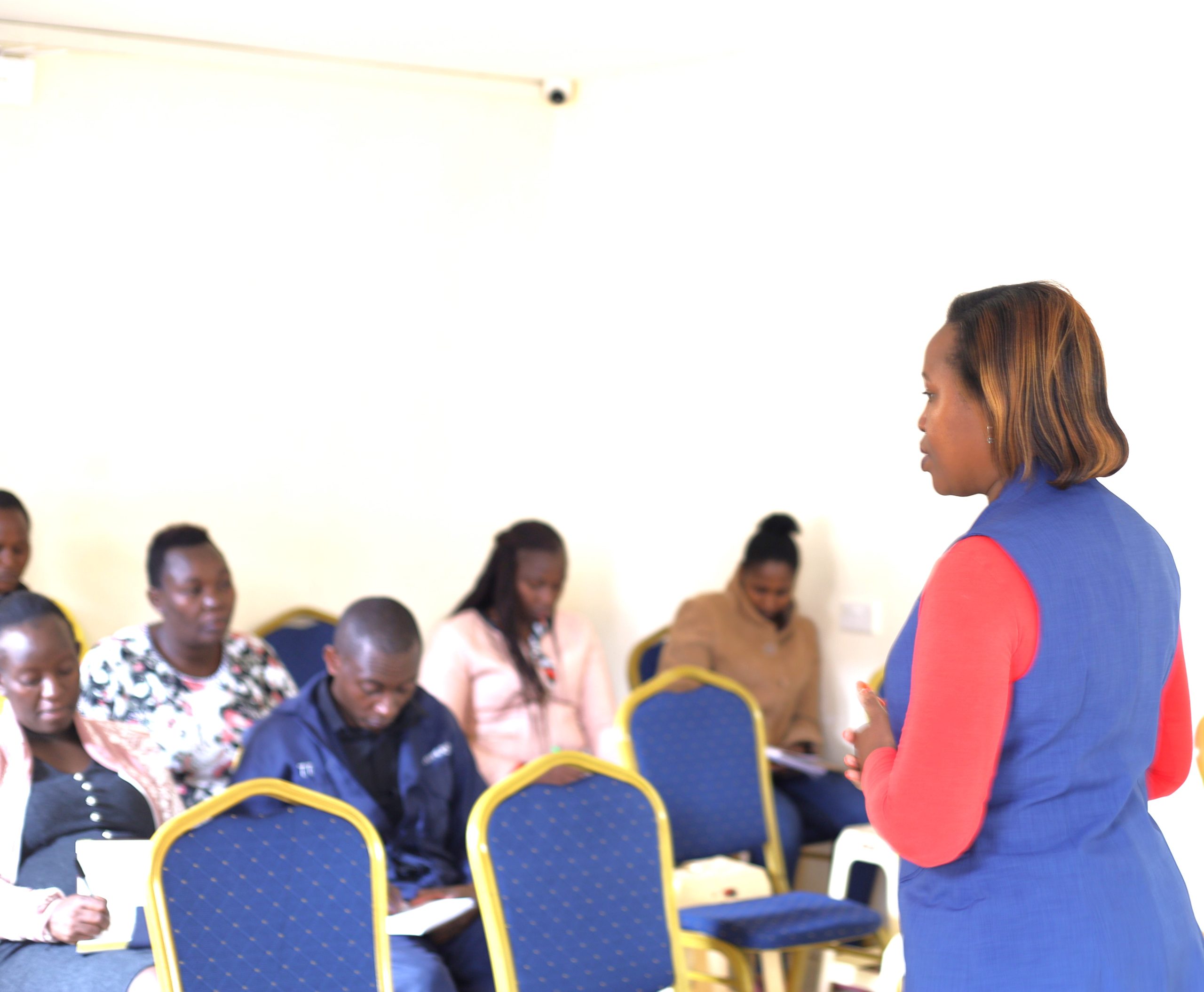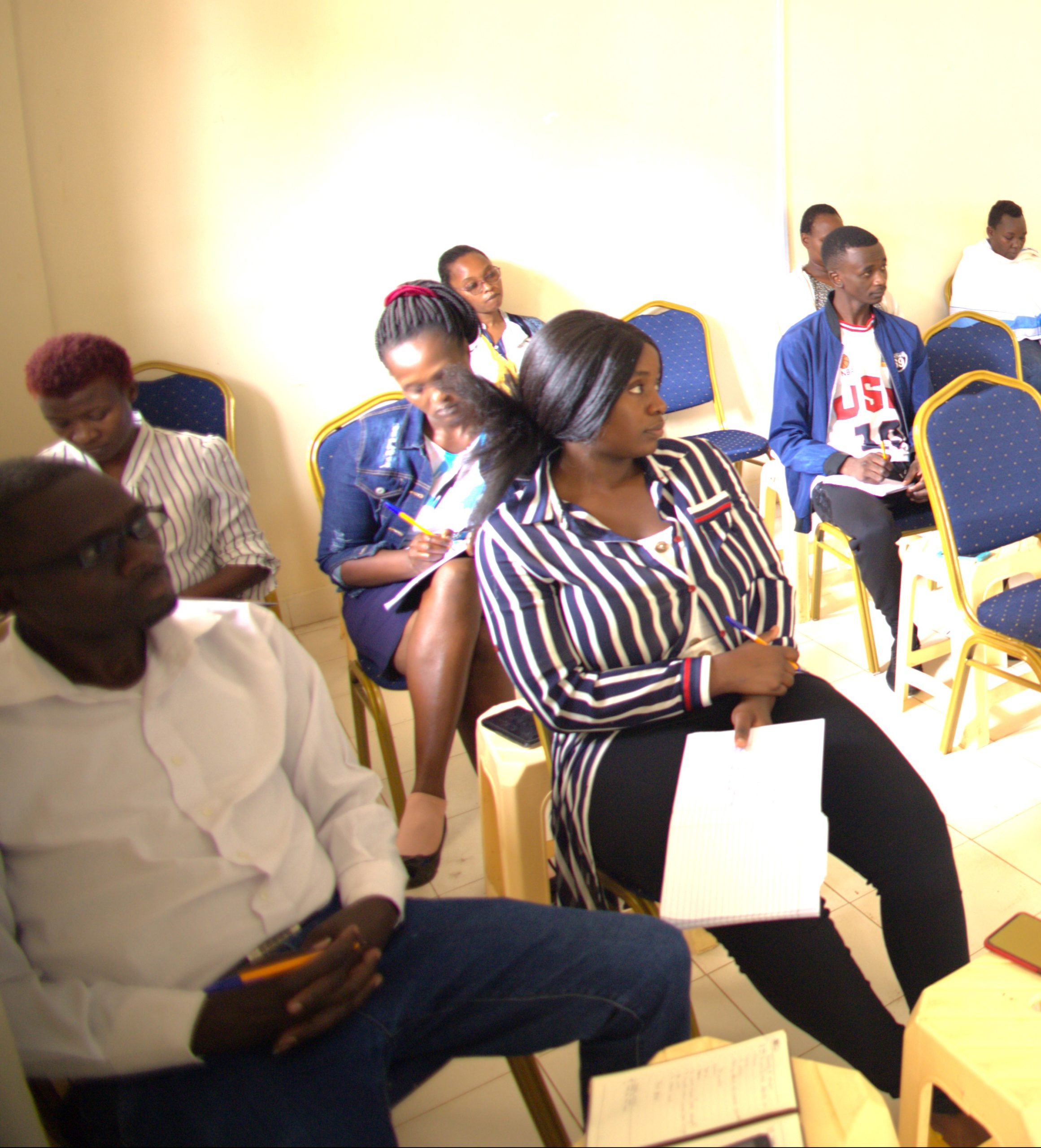Advanced Food Safety Training

Gladys Mumbi, Carol Kalekye, Miriam Mbura and Esther Gitiha in a group discussion during the training (Image By Amadi Kwaa Atsiaya)
Superfine Africa Nuts Limited recently held a food safety training workshop for members of staff. The composition of the participants cut across the spectrum of the company’s ranks, and for three days, there were a lot of discussions and illustrations on the dos and don’ts of handling food. From this, it is apparent that food safety could as well be the answer to our survival as a species.

Monicah Nyambura keenly following the training (Image By Amadi Kwaa Atsiaya)
Too Much Formality?
The first president of Tanzania, and hero of the independence struggle not just in Tanzania but the whole of Africa; Mwalimu Julius Kambarage Nyerere is often quoted as having told his people ‘Kwenda Uingereza ni umangimeza tu. Kama wataka kuona London, nenda tu hapa Nairobi (Going to England is a sheer formality. If you wanna see London, just visit Nairobi). This suggests that you need not necessarily have to do the real thing to achieve the same effect. While this could be true in many other things, the sad fact is that you may never apply the same doctrine to food safety. The journey from Dar-Es-Salaam to London (working with Mwalimu Nyerere’s analogy) is so precise in the food industry that if you were to be held up for a day while en route to the King’s capital, you would be wiser abandoning the trip and going back to the beginning to start afresh.

Kipkoech Geoffrey puts it down on paper during the training (Image By Amadi Kwaa Atsiaya)
Food Safety Tragedy
At the beginning of April this year, Mukumu Girls High School, located in Western Kenya was indefinitely closed after the students were taken seriously ill, resulting in a few deaths. Investigations showed that there was a causal relationship between the sudden illness which had visited the school, and the quality of food and water that was being consumed in the school. The borehole and the food reserves in the school received much of the flack during the investigation for what was behind the epidemic that suddenly broke out in the school. The Mukumu case is a real tragedy that strongly draws our attention back to the centrality of food safety in human survival and continued existence.
In Kenya, all food handling facilities are supposed to follow very stringent safety protocols, which are attached to licensure. For companies involved in international trade in food products, there is no option but to toe the line or forgo the opportunity to serve international customers. Mukumu just showed how little attention is given to food safety, and the consequences that could accrue from such neglect.

Food scientist Lois Ndiba conducting the training (Image By Amadi Kwaa Atsiaya)
Maintaining Standards
While the general public may not give a hoot about how food is handled, the food processors go to great lengths to ensure that their product is like Ceasar’s wife – beyond reproach. That is why the industry is subject to among other measures and controls, certifications such as the Food Safety System Certification (FSSC), and the Hazard Analysis Critical Control Points (HACCP). The training at Superfine was guided by these standards, which ensure that there is not only training in food safety, but that the facility is designed, equipped, and promotes processes that are in strict observance of the necessary requirements for food safety.

Anthony Nyongesa and Yvonne Buyekha following up on the proceedings (Image By Amadi Kwaa Atsiaya)
Food Safety Culture
Speaking during the training, food scientist Lois Ndiba who is also a lead trainer in food safety from Food Safety International (FSI) said that the idea behind training is to produce champions of food safety. “Paramount is the development of a food safety culture”, she added. This involves doing things that might not be comfortable, but doing them with joy knowing how important they are. That is why practices such as washing and sanitizing hands every hour might look neurotic to the outside world but to the food handler, that is one of the sanest things one could practice, and trainings such as this reinforce this culture which maintains high standards of hygienic food handling.
As the curtain fell on this session of training, it is not the last, for much more training is lined up within the year. Going back to the distressing example of the school in Western Kenya, a food facility is safer abiding by the strict protocols of food handling than risking the consequences of not doing so.





